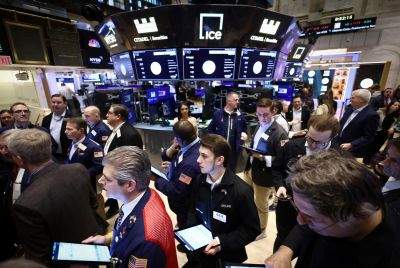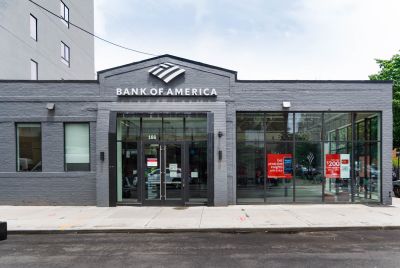If 70–80 per cent of the rich are self-made – what about the mass of 'ordinary' millionaires?
The National Study of Millionaires found out that 74 per cent of millennials believe that millionaires inherited their money and more than half (52 per cent) of baby boomers think the same.

Time and time again you hear: "It used to be possible to become rich by your own efforts, but that is a rare exception today." Allegedly, most rich people have inherited their wealth.
Just one look at the list of the richest people in the world is enough to give pause for thought. Whether Elon Musk, Jeff Bezos, Sergej Brin and Larry Page, Bill Gates, Michael Bloomberg or Warren Buffett – none inherited their vast fortunes.
It is true that a few of them did inherit something (as, incidentally, is the case with one in five Americans), but the decisive factor in building their wealth was not an inheritance windfall but a bright entrepreneurial idea. Brin and Page had the idea to develop the best search engine in the world – and became rich with Google. Jeff Bezos recognised the potential of eCommerce earlier than others and became rich with Amazon.
In 2014, Forbes began assigning each billionaire a self-made score. A mark of between 1 and 5 indicates that an individual has inherited their wealth. A score of 6 to 10 means they built their own company or established their fortune on their own. In 2022, 275 members of The Forbes 400 scored between 6 and 10, meaning nearly 70 per cent of the list is self-made.
Anti-capitalists can't stand the term "self-made". They claim that the term suggests that the rich did it all by themselves when they would never have become anywhere near as rich without the workers and employees in their companies. Of course not. But the crucial factor is having the right idea – that's how you get rich.
If you only implement other peoples' ideas, you earn less. And if you do work that almost anyone else could do, you get paid for it, but at the lowest rate. That doesn't mean that these jobs are unimportant, but they are only paid low wages because there are many people who could do them – and in the course of time, these workers will often be replaced by robots that can do the work even more cost-effectively. You can't replace Jeff Bezos with a robot.
If almost 70 per cent of the 400 richest Americans are self-made – what about the mass of "ordinary" millionaires? First off, here are some figures for the USA again: The National Study of Millionaires – the largest study ever conducted on millionaires – found out that 74 per cent of millennials believe that millionaires inherited their money and more than half (52 per cent) of baby boomers think the same.
But the study of millionaires confirms that:
- Only 21 per cent of US millionaires received any inheritance at all.
- Just 16 per cent inherited more than $100,000.
- Only 3 per cent received an inheritance at or above $1 million.
But what is the situation in other countries? Take Germany, for example. German Researchers published a study on the personality traits of millionaires. They wanted to know whether millionaires have a different personality than the average population. While they were conducting their study, the researchers found something that is at least as interesting as the study's main findings. They compared a sample of the total population with a sample of 1,125 Germans who have a net worth of at least 1 million euros.
Within this group, they distinguished between predominantly self-made millionaires (for example, those who had acquired their wealth through entrepreneurial activities, self-employment or investment), and those who had become rich through inheritance. In the sample, 45 per cent were self-made millionaires and 12 per cent were heirs. For 41 per cent, it was not possible to make a clear distinction or both factors played a role.
Excluding this last group, 79 per cent of millionaires are self-made and 21 per cent are heirs. But even if one splits the 41 per cent who cannot be clearly assigned to one of the two categories in half, the result is that almost two-thirds of the respondents' wealth was "self-made" and only one-third was acquired via inheritance or as a gift. In countries that are developing dynamically – such as Vietnam, Poland and China – the proportion of heirs is naturally even lower than in developed countries.
Thus, the argument that today it is only possible to become rich via inheritance is simply not true. The anti-capitalists who make this claim are discouraging young people. They also never have entrepreneurial ideas – their ideas are always the same: The state should get into more and more debt and should take more money from the wealthy. However, redistribution and debt do not create new wealth, only entrepreneurial ideas do.

Rainer Zitelmann is a historian, sociologist and multiple bestselling author, whose books include “In Defence of Capitalism” https://in-defence-of-capitalism.com/ and “Hitler’s National Socialism” https://hitlers-national-socialism.com/ among 26 other published books. His books have been translated into 30 languages around the world. In recent years, he has written articles and been the subject of interviews in leading media such as Forbes, Newsweek, The Daily Telegraph, The Times, Le Monde, Corriere della Sera, Frankfurter Allgemeine Zeitung, Neue Zürcher Zeitung, and numerous media in Latin America and Asia.
© Copyright IBTimes 2025. All rights reserved.




















